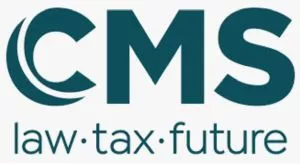- with readers working within the Banking & Credit and Securities & Investment industries
- within Insurance and Wealth Management topic(s)
Background
On February 5, 2025, the International Capital Markets Association (the ICMA) published a paper1 with comments and recommendations for the simplification of the EU Sustainable Finance legislation (the Paper).
In the Paper, the ICMA calls for bold reforms and changes to the European Union (EU)'s key sustainable financial regulations in order to address the practical challenges faced by the industry, mainly due to the multiplicity of data and reporting requirements.
Indeed, the Paper explains the burdens associated with the application of each of the EU Taxonomy2 , CSRD3 and SFDR4 and suggests major changes to simplify their application in the EU market, including:
1) Focusing CSRD mandatory reporting requirements on essential data points and disclosures;
2) Streamlining SFDR reporting in line with (i) the refocused data from CSRD (ii) reporting based on ISSB and (iii) other official sector and leading market-based taxonomies and avoiding misaligned sequencing between CSRD and SFDR obligations;
3) Maintaining the flexible definition of 'sustainable investments' in line with the definition and related guidance in Article 2(17) of the SFDR; and
4) Adjusting timelines for pending legislation to allow for a logical sequencing and implementation of industry feedback while providing certainty on interim requirements or suspending enforcement where appropriate.
The purpose of this publication is to address the key elements of the ICMA's recommendations, which are set out below.
Addressing the problematic usability of the EU Taxonomy
The Paper provides figures to highlight the problematic usability of the EU Taxonomy.
According to a recent study mentioned by the ICMA5, 1900 large and public-interest entities have so far been subject to the reporting requirements of Article 8 of the EU Taxonomy, of which 50% have not yet made any of the required disclosures. Where companies are complying with entity-level reporting requirements, most have reported less than 5% alignment with the EU Taxonomy.
The Paper also shows that the reported EU Taxonomy alignment is mostly against the climate objectives (mitigation and adaptation), which are only two of the six environmental objectives of the EU Taxonomy for which technical screening criteria (TSC) have been developed.
According to the ICMA, the difficulties in using the EU Taxonomy are namely due to (i) highly granular data requirements, (ii) a strong stance against estimation and the lack of a common approach to estimation/proxies, (iii) the heavy reliance on EU legislation and local criteria affecting the assessment of non-EU based activities, and (iv) the fact that it is not necessarily adapted to all companies, especially smaller companies and projects, nor to all sectors.
The ICMA outlines the difficulties of implementing the EU taxonomy and warns against its use as the sole measure of sustainability6. According to the ICMA "if used as the exclusive measure of sustainability, the EU Taxonomy is arguably at risk [...] by restricting such capital flows through its narrow focus", which diverges from the EU Taxonomy's objective of "mobilising capital at scale for sustainable development".
In this regard, the ICMA puts forward the following recommendations to address the usability challenge of the EU Taxonomy:
1. Limit mandatory reporting (i) to large and listed companies, (ii) to the climate change targets, and (iii) by requiring only the revenue and CapEx alignment metrics if a general materiality test based on "Taxonomy Eligibility" is passed.
2. Facilitate the "do not significantly harm" (DNSH) assessment by (i) allowing the inclusion of generally accepted proxies and (ii) introducing "substantial contribution" as an alternative to the existing TSC, which would be based on widely recognized standards.
3. Urgently consider equivalency treatment for the taxonomies of other jurisdictions and leading international market-based taxonomies.
Improving the usefulness and relevance of detailed disclosures under the CSRD
The Paper confirms the ICMA's general support for an EU standard for sustainability reporting based on a dual materiality perspective, as introduced by the CSRD and complemented by the European Sustainability Reporting Standards (ESRS).
However, it highlights the very prescriptive, detailed and numerous data requirements that companies in scope will have to comply with and questions the usefulness and effectiveness of such detailed disclosures for investors and other stakeholders.
In this context, the ICMA recommends in relation to the CSRD that (i) the materiality assessment under the future sector-specific standards should be refocused to help companies focus their assessment and disclosure on the few core issues that are likely to be material to their business and reduce the number of data points, and (ii) the metrics that would be decision-useful to investors should be prioritised.
The ICMA also calls for communication of further support for the ESRS disclosures, as no third-party consultancy should be needed for the implementation of CSRD beyond the required limited assurance.
Necessity to reduce and refocus disclosures under SFDR
While the ICMA recalls the general assumption that SFDR has not achieved its objectives for a variety of reasons, the Paper suggests improvements to the SFDR regime, namely through the simplification of the disclosures (e.g., reducing the number of disclosures, refocusing on material issues and considering expected data availability from the future CSRD/ESRS disclosures).
In addition, the ICMA is in favour of introducing a single universal disclosure for all funds, based on the proportion of exposure of each fund to entities implementing credible transition plans.
Finally, the Paper reiterates that the definition of sustainable investments within the EU regulatory framework, and/or the criteria underlying any potential "sustainable" category of products, should not be reduced to the EU Taxonomy alignment alone.
What's next?
The Paper follows the publication of the report of the Platform on Sustainable Finance (the Platform) in December 2024, proposing the introduction of a categorisation system for financial products by imposing certain binding elements and criteria7 to namely address the increasing risk of greenwashing.
However, the ICMA diverges from the position of the Platform and follows the general assumption according to which the European Union regulatory framework should converge towards simplification of the reporting obligations for market players, especially in the field of sustainable finance.
While EU legislation on sustainable finance is currently evolving and seeking feedback from the industry, market participants are encouraged to comply with the existing framework in line with the available guidance provided by the various regulators or industry experts.
Footnotes
2 The EU Taxonomy is set out in Regulation (EU) 2020/852 of the European Parliament and of the Council of 18 June 2020 on the establishment of a framework to facilitate sustainable investment, and amending Regulation (EU) 2019/2088
3 Directive (EU) 2022/2464 of the European Parliament and of the Council of 14 December 2022 amending Regulation (EU) No 537/2014, Directive 2004/109/EC, Directive 2006/43/EC and Directive 2013/34/EU, as regards corporate sustainability reporting
4 Regulation (EU) 2019/2088 of the European Parliament and of the Council of 27 November 2019 on sustainability‐related disclosures in the financial services sector
5 Source: Read more
6 Making the EU Taxonomy as the only reference for sustainable investments have been envisaged by several bodies of the EU
7 For more information, please read our publication: Read more
The content of this article is intended to provide a general guide to the subject matter. Specialist advice should be sought about your specific circumstances.



